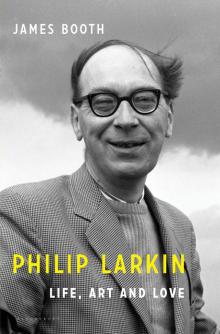Philip Larkin (1922-1985) is one of the most beloved poets in English. Yet after his death a largely negative image of the man himself took hold; he has been portrayed as a racist, a misogynist and a narcissist. Now Larkin scholar James Booth, for seventeen years a colleague of the poet's at the University of Hull, offers a very different portrait. Drawn from years of research and a wide variety of Larkin's friends and correspondents, this is the most comprehensive portrait of the poet yet published.Booth traces the events that shaped Larkin in his formative years, from his early life when his his political instincts were neutralised by exposure to his father's controversial Nazi values. He studies how the academic environment and the competition he felt with colleagues such as Kingsley Amis informed not only Larkin's poetry, but also his little-known ambitions as a novelist.

 Variant
Variant The Reincarnated Prince
The Reincarnated Prince Seeking the Dream
Seeking the Dream Double Dare You: A Bedlam Butchers MC Romance
Double Dare You: A Bedlam Butchers MC Romance Lady Justice and the Pharaoh's Curse
Lady Justice and the Pharaoh's Curse Respectant
Respectant Lottie Biggs is (Not) Desperate
Lottie Biggs is (Not) Desperate Stay With Me_Taphouse Blues Series_Bk 1
Stay With Me_Taphouse Blues Series_Bk 1